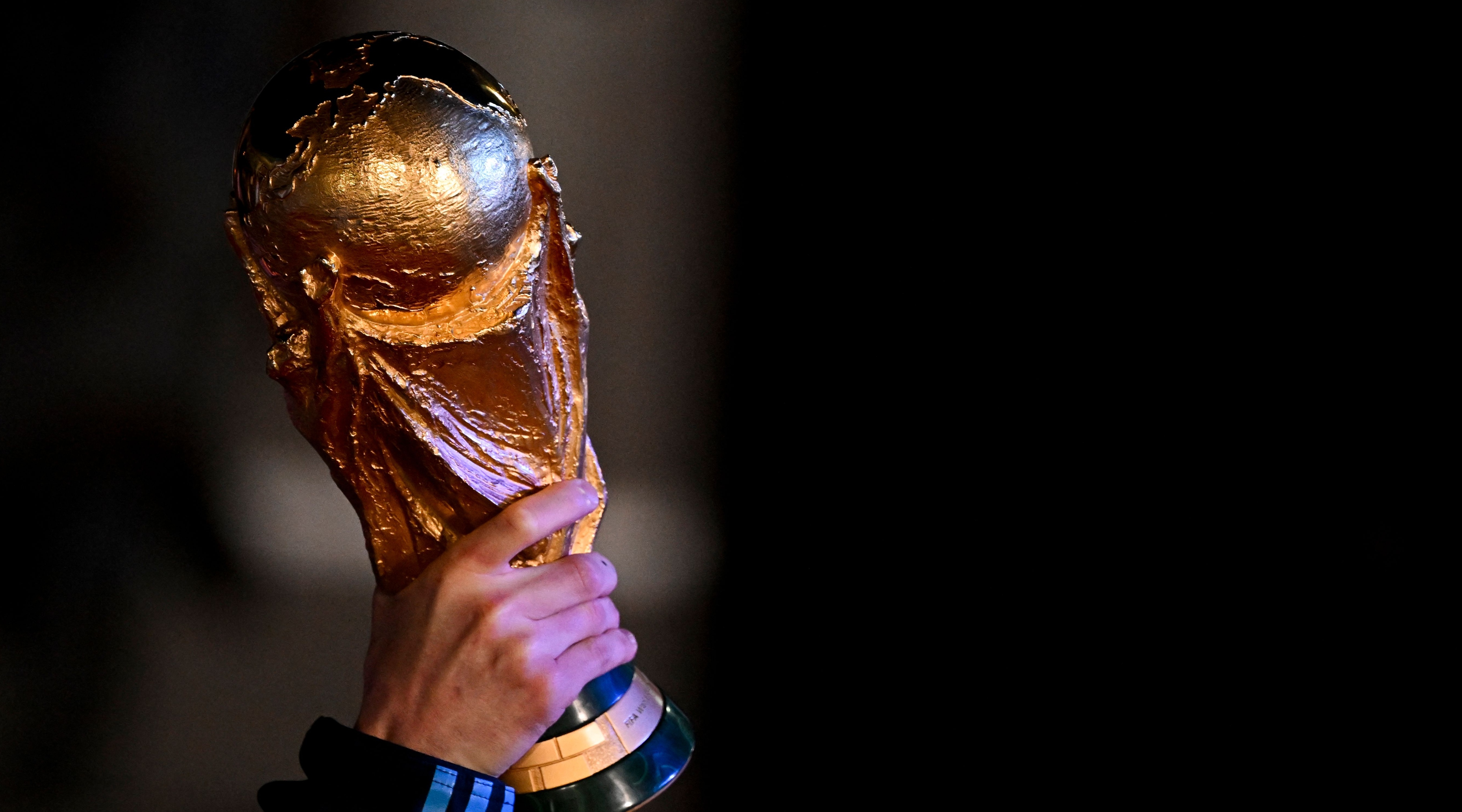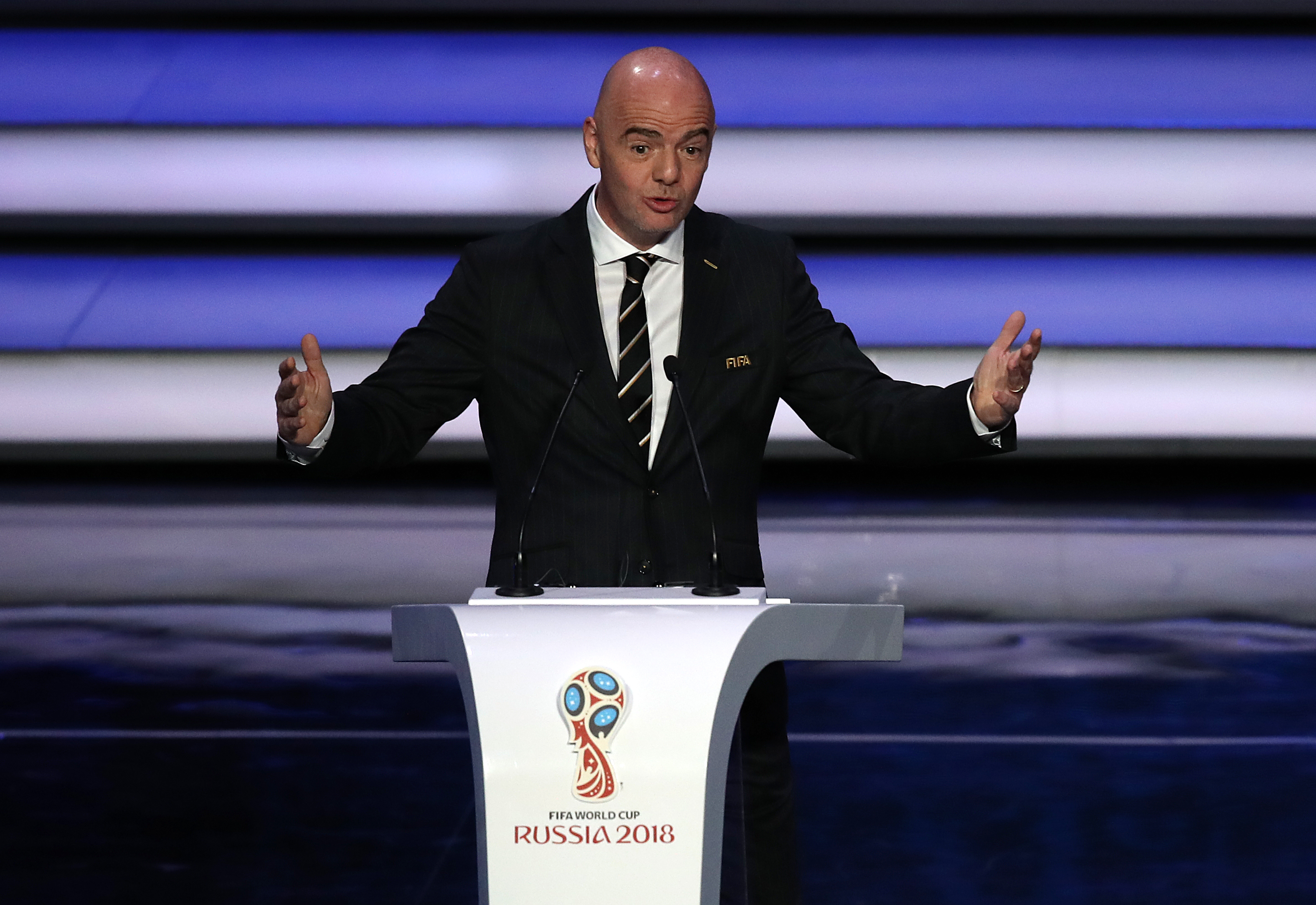
Saudi Arabia is to host the 2034 World Cup, after the Middle Eastern nation were awarded the rights by FIFA.
In some controversy, however, the Saudi bid was the only one on the table for the competition, with FIFA accused of “bending the rules” to make such a thing possible. FIFA president Gianni Infantino has been at the forefront of changes to the way that the World Cup is awarded, with plenty of questions for the governing body to answer.
It all starts in 2030, actually – when six whole nations will host the greatest show on Earth.
Why was Saudi Arabia the only nation bidding for the 2034 World Cup?

Essentially, FIFA are said to have “bent” rules in order to give Saudi Arabia a clear path to host the World Cup in 2023. While one rule – lowering the requirement for the number of existing stadiums with a minimum capacity of 40,000 from seven to four – was fairly minor, the New York Times described the awarding of the 2030 World Cup as “curious”, as it directly affected Saudi.
When the 2030 tournament was awarded to Spain, Portugal and Morocco, FIFA claimed that to honour the centenary of the inaugural competition in Uruguay, the first three games of 2030 would take place in Uruguay, Argentina and Paraguay, respectively, after the three South American nations – along with Chile – also bid for the right to host. Since no confederation is allowed host back-to-back World Cups, it eliminated South America, along with Europe and Africa, from bidding for the 2034 edition.

In the second “curious” turn from FIFA, the bidding process for the 2034 tournament was sped up to just 25 days, giving virtually no time to potential bidders to get their case together.
Thus, Saudi Arabia were able to run unopposed, with no other AFC or OFC nations putting together a bid. The nation had previously explored the possibility of partnering with Europe and Africa itself, in launching a 2030 bid alongside Greece and Egypt – but went solo, announcing that it had submitted the official letter of intent and signed the declaration to FIFA on October 9 2023.
Other bids that failed to materialise came from the Association of Southeast Asian Nations (which includes Brunei, Cambodia, Indonesia, Laos, Malaysia, Myanmar, Philippines, Singapore, Thailand and Vietnam) and a bid involving Australia – which may or may not have been joint with the ASEAN bid.
Australia explored the idea of hosting with New Zealand after the 2023 Women's World Cup, with Indonesia, Malaysia or Singapore, with the 2032 Summer Olympics set to be held in Brisbane. Ultimately, no bid came to fruition.

Saudi Arabia's World Cup has already attracted controversy due to human rights violations in the country. In addition to this, there are concerns about scheduling another tournament in the winter, with a date of January 2034 pencilled in for the competition.
The 2034 World Cup will be the third to take place in Asia, following 2002 in Japan and South Korea, and 2022 in Qatar.







